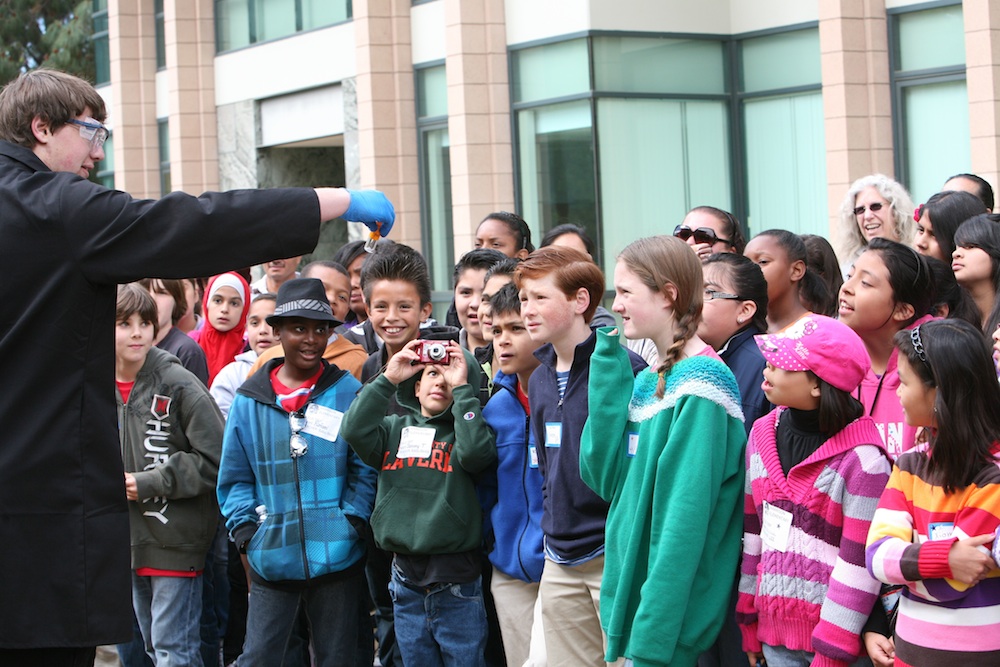Science Bus Awarded Biology Grant
June 29, 2015
Science Bus, a student-run volunteer organization at Harvey Mudd College that brings weekly hands-on science, technology, engineering and mathematics (STEM) lessons to elementary school students, was awarded €1,600 ($1,800) from the European Society for Evolutionary Biology to develop and teach evolution-themed lessons.
More than 50 Science Bus student volunteers raise funds, develop lessons and work alongside teachers in fourth- and fifth-grade classrooms at five elementary schools. Many of the more than 500 elementary students come from underrepresented minority groups or are socioeconomically disadvantaged.
Science Bus also brings elementary school students, their parents and teachers to campus in the spring for an annual Science Day event filled with experiments, demonstrations and fun.
“The grant is designed to allow Science Bus to refine and expand existing lessons to incorporate evolutionary biology principles, as well as develop new lessons that address the subject,” said Brian Gray, assistant director for community engagement and Science Bus advisor. “More broadly, this grant provides Science Bus with the resources it needs to keep developing innovative lessons—in this case, in evolutionary biology—that make it an effective, responsive and forward-thinking program.”
Evolution education is especially important because it is a unifying theme in the life sciences under the Next Generation Science Standards, which have been mandated for K-12 classrooms in California and other states across the country.
Science Bus is open to students from all five colleges, though the vast majority of the membership and leadership comes from Harvey Mudd.
Incoming club President Paige Rinnert, an engineering student, has taught for Science Bus the past two years and was in charge of this year’s annual Science Day event
“I got involved with Science Bus because I am passionate about STEM, teaching and spending time with elementary school kids,” Rinnert said. “I love that by sharing my passion for science with the kids, I am instilling an enthusiasm for science and related areas.”
One of her favorite Science Bus experiences was receiving a collection of handwritten and illustrated thank-you notes from the students in one of the classrooms where they taught.
“The kids filled the pages with drawings of their favorite lessons (many of them loved the gummy bear catapult lesson) and thanked the volunteers for taking the time to come to their classroom every week,” Rinnert said.
One of the most popular evolution-themed lessons involves picking up objects like paper clips and pieces of paper with different tools like a spoon or tweezers to demonstrate how birds might develop different beak shapes that are best suited to the type of food that is available.
“The kids enjoy it because they can compete to see who can pick up more of a given ‘food’ with their particular ‘beak,’” Rinnert said.
The Science Bus program, which started in 2006, was honored in April as an Outstanding Student Organization at Harvey Mudd’s third annual Leadership Awards Ceremony for working to bring STEM to underserved communities.
